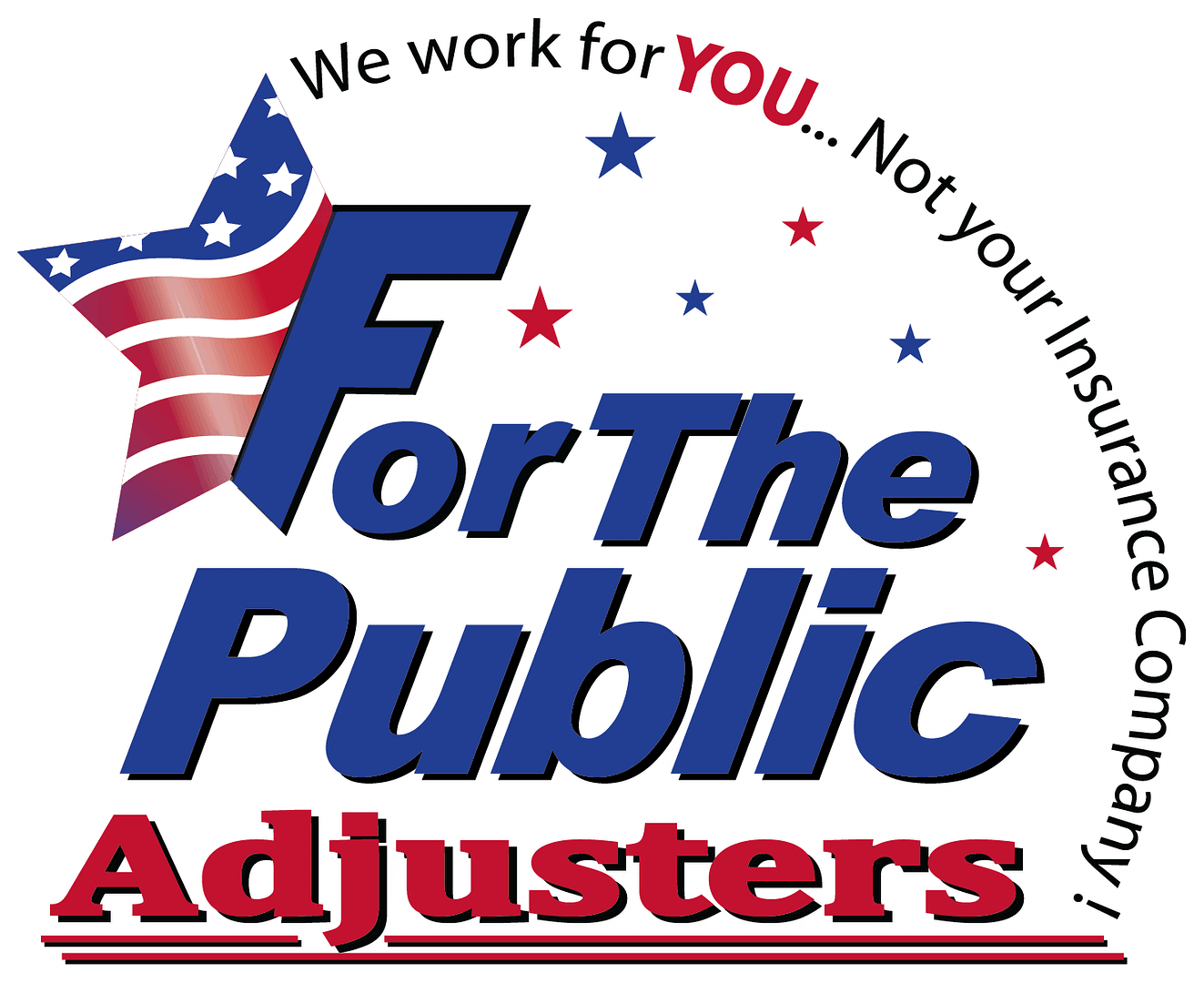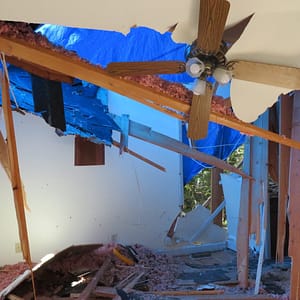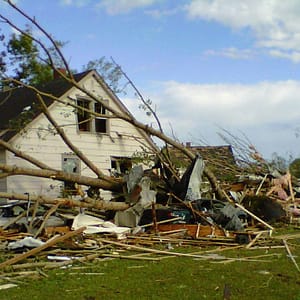A house fire can be a devastating event, both emotionally and financially. As you begin to rebuild your life, you may find yourself dealing with another challenge: dealing with insurance after a fire damage claim. While insurance is designed to protect you during such times, it’s important to be aware of tactics that insurance companies may use to minimize payouts. Simply put, it’s not easy to deal with an insurance adjuster. One common tactic is low-balling claims, offering significantly less compensation than what is rightfully owed.
Understanding the Tactics When Dealing With Insurance After A Fire Damage Claim
Insurance companies have a vested interest in paying out as little as possible. To achieve this, they may employ various tactics, including:
- Delayed Response: By delaying the claims process, insurance companies can frustrate policyholders and potentially weaken their resolve. This delay can also hinder the investigation process, making it difficult to document damages accurately.
- Underestimating Damages: Insurance adjusters may undervalue the extent of the damage, particularly when it comes to personal belongings. They may use outdated valuation methods or claim that certain items were not covered by the policy.
- Challenging the Cause of Loss: Insurance companies may try to dispute the cause of the fire, claiming that it was due to negligence or intentional acts. This can lead to denied claims or reduced payouts.
- Denying Coverage: Insurance companies may try to deny coverage altogether by citing policy exclusions or claiming that the damage was not caused by a covered peril.
- Pressuring for Quick Settlements: Insurance adjusters may pressure policyholders to settle quickly, often offering low-ball offers. They may use tactics such as threatening to withhold payments or delay the claims process.
 Protecting Yourself from Low-Ball Offers When Dealing With Insurance After A Fire Damage Claim
Protecting Yourself from Low-Ball Offers When Dealing With Insurance After A Fire Damage Claim
To ensure that your interests are protected and that you receive a fair settlement, it is crucial to implement a strategic approach. By carefully considering the following strategies, you can increase your chances of achieving a favorable outcome and securing the compensation you deserve. Consider these tips:
-
Document Everything:
- Take photographs and videos of the damage from multiple angles.
- Create a detailed inventory of lost or damaged belongings, including receipts, appraisals, and photographs.
- Keep a record of all communication with the insurance company, including emails, phone calls, and letters.
-
Understand Your Policy:
- Carefully review your insurance policy to understand the coverage limits, exclusions, and deductibles. Pay attention to any specific provisions related to fire damage.
- Consult with an insurance agent or attorney to clarify any ambiguities or questions.
-
Be Prepared to Negotiate When Dealing With Insurance After a Fire Damage Claim:
- Insurance companies are businesses, and negotiation is a part of their business model. Be prepared to negotiate your claim and don’t be afraid to push back on low-ball offers.
- If necessary, be willing to escalate the matter to a higher level within the insurance company or involve a legal professional.
-
Avoid Signing Anything Quickly:
- Don’t rush to sign any settlement agreements or releases without carefully reviewing them. Consult with a legal professional if you have any concerns.
-
Consider Hiring a Fire Damage Claim Public Adjuster Before Dealing With Insurance After a Fire Damage Claim:
- Dealing with insurance after a fire damage claim is an overwhelming experience. It will become a full-time job for you. Most adjusters start off real pleasant and then can become less cooporative as the claim moves forward.
- A public adjuster works on your behalf (not the insurance company’s) to assess the damage and negotiate the claim.
- They can help ensure that you receive a fair settlement. Read more about consulting with a Fire Damage Public Adjuster here.
Does homeowners insurance go up after a fire?
Yes, unfortunately, filing a claim for a fire “can lead” (but not always) to an increase in your homeowners insurance premium. Insurance companies often view policyholders who have filed claims as higher risk, making them more likely to file future claims. This increased risk perception can result in a premium hike.
Other Tips To Consider While Dealing With
Insurance After a Fire Damage Claim
You Do NOT Need Multiple Estimates
- Contractor Quotes: While it is indeed wise to gather estimates from several reputable contractors to understand the potential repair costs, it is crucial to remember that you only need to share the estimate from the contractor you feel most comfortable with—the one you trust to do the job right. You are not obligated to present multiple estimates to your insurance company adjuster.
- Fair Assessment: Obtaining multiple fire damage estimates can be beneficial as it may provide a more accurate representation of the repair costs involved. This practice can also help you avoid lowball offers from the insurance company, ensuring you receive a fair evaluation of the damages.
Review Initial Offers Carefully
- Detailed Breakdown: It is essential to ensure that the initial offer you receive from the insurance adjuster includes a comprehensive breakdown of how they calculated the settlement amount. This transparency will help you understand the basis of their offer.
- Negotiate: If the initial offer appears to be too low, do not hesitate to negotiate. Remember, you have the right to advocate for yourself while dealing with insurance after a fire damage claim. Provide your documentation and contractor estimates to bolster your case and demonstrate the true value of your claim.
File Promptly
- Timely Reporting: It is imperative to report the fire damage to your insurance company as soon as possible. Prompt reporting can help expedite the claims process and ensure that your claim is handled efficiently.
- Deadlines: Be vigilant about adhering to any deadlines for filing claims and submitting necessary documentation. Missing these deadlines can jeopardize your claim and your ability to receive the compensation you deserve.
Keep Detailed Records
- Communication: Maintain a meticulous log of all communications with your insurance company. This log should include dates, times, and the names of the representatives you speak with. Keeping detailed records can be invaluable if disputes arise.
- Documentation: Save copies of all correspondence, forms, and documents related to your claim. Having organized documentation will support your case and provide evidence of your interactions with the insurance company.
 Know Your Rights
Know Your Rights
- State Regulations: It is important to familiarize yourself with state regulations when dealing with insurance after a fire damage claim, as these can vary significantly from one state to another. Understanding these regulations may provide you with additional protections or benefits that you can leverage during the claims process.
- Appeal Process: Be aware of the process for disputing a claim if you believe the settlement offered is unfair. Knowing your rights and the steps to take can empower you to advocate effectively for a more equitable resolution.
By understanding the tactics employed by the adjuster when dealing with insurance after a fire damage claim, you can better protect yourself, safeguard your rights, and maximize your insurance claim. Remember, you do not have to settle for less than what you deserve. With the right knowledge and representation, you can ensure a fair outcome. Unfortunatley, you will have to deal with an insurance adjuster on your own unless your seek assistance.
This serves as yet another reminder of why policyholders should consider speaking to a NC State Licensed Public Adjster to look out for their best interests. We will answer you questions at no cost, it’s FREE to have your questions answered. There is NO SALES PITCH, NO PRESSURE, JUST ANSWERS!
The insurance company has an adjuster… You Should Too!
.
Related Resources
Related 1: Bad Faith Lawsuit Against Allstate Insurance Upheld
Related 2: United Policyholders
More and more policyholders are finding themselves fighting with insurance company representatives.
Insurance company adjusters act like the policyholder (you) is trying to take “their personal money.”
There is really only one fact when it comes to any type of claim you have. It’s not the
It’s your money.
You are entitled to the full “Amount of Loss,” for the damages that your home or business has suffered. A public insurance adjuster works for you, not the insurance company.


 Protecting Yourself from Low-Ball Offers When Dealing With Insurance After A Fire Damage Claim
Protecting Yourself from Low-Ball Offers When Dealing With Insurance After A Fire Damage Claim Know Your Rights
Know Your Rights




Hello! Valuable information. My mom and dad could have used this advice when they had their fire.